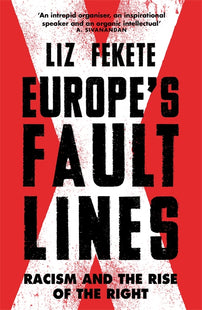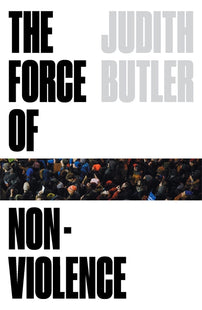End deportation flights!: resisting the new authoritarianism
On February 11, a mass deportation flight to Jamaica departed from Doncaster Airport, UK, carrying seventeen people. At the same time the government announced an emergency law to imprison people convicted of “terror offences” for longer, and the Metropolitan police deployed facial recognition technology on the streets of London. In this article, Gracie Mae Bradley and Luke de Noronha analyse the authoritarian context of the new series of charter flights for so-called ‘foreign criminals’, and how to resist it.

On February 11, a mass deportation flight to Jamaica departed from Doncaster Airport, UK, carrying seventeen people. Initially fifty people had been targeted by the Home Office for forcible removal, but a last-minute court challenge led to a reprieve for around thirty of them on the basis that mobile phone signal issues in Harmondsworth and Colnbrook immigration detention centres had unlawfully limited their ability to speak to their lawyers – although how long this will last is unclear. Indeed, the Home Office is reportedly chartering a second flight already. At least seven of the people who were deported are now in hiding and fear for their lives in Jamaica, and the widespread media coverage of these mass deportation flights, in the UK and Jamaica, makes deported people more visible on their return (the description of these charter flights as ‘convict flights’ is unlikely to be welcomed by those being deported on them).
On the same day that the charter flight was due to take off, the government announced an emergency law to imprison people convicted of “terror offences” for longer, and the Metropolitan police deployed facial recognition technology on the streets of London for the first time since the end of their initial trial. A week later, the Home Office announced its policy statement on the new points-based system to be introduced after Brexit, with its stated goal being to “end free movement, reassert control of our borders and restore public trust.” What can we make of this authoritarian turn currently under way?
The flight and surrounding advocacy
In the context of the ongoing Windrush scandal, it has not been easy for the Home Office to quietly deport people to the Caribbean. The overall number of ‘enforced removals’ fell sharply in 2018 and 2019, and removals to Jamaica have become especially controversial. Clearly, this is frustrating for the government and the Home Office given their need to be ‘tough on immigration’ while also avoiding further Windrush-like scandals. This explains the mass deportation charter flights to Jamaica in both 2019 and 2020, which were justified by the fact everyone on board was a so-called ‘serious criminal’. These charter flights, then, allow the Home Office to reclaim some territory, to reassert its mettle, and to enforce immigration controls in a quite spectacular way.
When news of the charter flight came to light, migrant advocates made several arguments in response. First, there were those who pointed out that the Windrush Lessons Learned review had not yet been published, and therefore it was unacceptable to deport people to the Caribbean before those lessons had been learned. In particular, the review reportedly includes a recommendation that people should not be automatically deported following a criminal conviction if they arrived in the UK before they were thirteen. Perhaps more tepidly, some politicians asked: can we really be sure that no one on this flight has a Windrush related case? Can we trust the Home Office on this? While framing things in terms of Windrush has clear political efficacy in the short-term, it begs the question of whether it is legitimate to deport non-Windrush migrants. For those of us against all immigration controls, this is obviously not a viable long-term strategy.
Second, it was emphasised that many of those on the flight moved to the UK as children and had spent most of their lives in the UK: these ‘deportees’ were more British than Jamaican. This argument is compelling – and one that the forthcoming book Deporting Black Britons precisely discusses – but again it has its shortcomings. While nationality, or entitlement to it, is the fundamental distinction on which deportation pivots, there is a broader point that we should be careful not to undermine: protection from state violence should not be dependent on proximity to Britishness. For as long as quasi-Britishness or entitlement to citizenship remain the fulcrum of debates on the use of authoritarian powers like extradition, citizenship-stripping, or deportation, we risk implicitly normalising a lower standard of treatment for non or dual citizens and reinscribing citizenship – an inherently exclusionary category – as the guarantor of protection from harm. And anyway, given the comparative ease with which the state has long turned citizens into foreigners, perhaps it would be more strategic in the long run to advocate in a way that insists that foreigners are full rights-holders too, rather than insisting that these deportations are wrong because these individuals are not really foreign. As Nisha Kapoor writes in Deport, Deprive, Extradite:
“The rights of citizens are intrinsically dependent on recognition by the nation-state in which one is located. In this way, underlying such demands is the assumption that the same forms of state violence being opposed remain defensible when applied towards those subjects outside of the nation’s boundaries, whether residing outside of the nation, in this context the UK, or as an internal denizen marked as an outsider. The liberal construction of citizenship defines the citizen always in relation to an ‘other’.”
Third, many advocates understandably emphasised the family relationships of those on the deportation flight: “41 British children will lose their fathers” was the line repeated by many MPs. In this context, the men facing deportation have to prove that they played significant roles in the lives of their British children – which inevitably ends up animating racist stereotypes about ‘absent fathers’ and proves damaging for men who have been separated from their children through incarceration. In these determinations, step-fatherhood is always valued less than ‘biological parenthood’, and we might question what this means for those who do not have children. The demarcation of ‘the family’ within immigration law – with its emphasis on blood, monogamy, and co-habitation – is troubled by the fact that “it is the family that produces and reproduces the overwhelming majority of the sexual violence on earth”. For many, ‘the family’ is something to be sought refuge from rather than in, and yet immigration controls work to enforce ‘the family’. For this reason, we should be fighting for something other than ‘the right to family life’ – or at least for a ‘family life’ that exceeds the narrow framework currently established in law – and yet the power of law is precisely that it limits how people can make themselves legible. Our point is not that lawyers should stop making ‘family life’ arguments for their clients – this would achieve nothing – but rather that the law forces people to perform gender, sexuality and ‘the family’ in particular ways, and we should struggle for it to be otherwise.
[book-strip index="1" style="display"]Last, and crucially, there were also those who emphasised that many people due to be deported had comparatively minor or non-violent convictions, and may in some instances have been groomed into the so-called county lines drugs trade themselves. In short, the villains weren’t as bad as all that, and in some cases they were actually victims. This argument makes immediate sense, and it feels unavoidable when the Home Office uses the “serious foreign criminal” label so liberally, against every non-citizen who has a criminal record (and sometimes against those who don’t). Yet, as Jackie Wang argues in her essay Against Innocence, “When we rely on appeals to innocence, we foreclose a form of resistance that is outside the limits of law and instead ally ourselves with the state.” First, appealing to the relative innocence of many of the people on the flight normalises the logic that for sufficiently “serious crimes”, ‘automatic deportation’ is a just consequence. Second, such appeals do nothing to challenge the carceral logic that claims that the initial criminalisation, punishment and incarceration is legitimate when applied to the right people. In fighting mass deportations, we cannot shore up the prison.
Beyond legal remedy
While legal challenges might be the most immediately effective way to prevent deportations, they also force us to speak in the law’s terms – to comport ourselves to the immigration policies that are themselves the problem we are up against. We see time and again across the political spectrum that the law becomes a kind of fetish-object: “what part of illegal immigrant don’t you understand?”. When Conservative politicians were challenged on whether these deportations were legitimate, they mostly responded, “It’s the law!” over and over again, before reminding us that ‘automatic deportation’ was brought in by New Labour, as though our sole concern was the prospect of unlawfulness, and as though it is only the parliamentary left that opposes charter flights.
Critical legal scholars and lawyers remind us that the law is the key mode through which state violence is enacted, and that we are necessarily compromised when we enter the courtroom. At the same time, for individual claimants, winning a legal case can be everything. In dealing with this tension, our wider analysis of the state really matters.
Perhaps this is the point at which it is worth unpacking the “we” and “our” we have invoked in the article so far. One defining feature of advocacy around this charter flight was the broad range of actors involved, from liberal NGOs, campaigning lawyers, grassroots solidarity groups, to the media and politicians. Some of us may be working towards an end to all deportations, but clearly not everyone was. While some of us may see ourselves working in service of a movement and in solidarity with the people at the sharpest end of state power, NGOs have duties to funders, members and Trustees and often an ethos that revolves narrowly around the rule of law. Lawyers are accountable to their individual clients and to the courts, and like the media and politicians, tend to work within a temporal frame that tends towards the short term. As we discuss below, state violence is likely to intensify over the coming months and years. Direct action as and where immigration enforcement happens is vital. When it comes to actions and advocacy that do not involve this kind of confrontation, it is especially important that we keep returning to the question of what it means to converge with certain actors around a specific expression of state violence but to diverge in our political analysis, temporality, and end goal.
Our points so far are not intended simply to rubbish every attempt to resist deportations as insufficiently radical. Indeed, while we have both been and are involved in grassroots migrant solidarity work, one of us works in policy at a liberal human rights NGO, and the other is an academic who writes expert witness reports on conditions on return to Jamaica for people facing deportation. As such we pose these questions not as dispassionate observers, radicals from without, or as experts above the fray, but as people implicated in and compromised by the dynamics we describe. And we do so because we believe that it is important to connect immigration policy to wider modes of authoritarian statecraft, thereby avoiding silos and remaining oriented by an abolitionist or anti-carceral approach to the state and law more broadly.
The wider authoritarian consolidation
As noted, the charter flight to Jamaica was not the only troubling story we awoke to on February 11. The government tabled legislation to change the administration of sentences for people convicted of “terror offences” to increase the length of time that they will spend in prison – while the Met police undertook their first deployment of facial recognition since the announcement of operational rollout. Following the charter flight, and the legal challenge which brought reprieve to 25 of those booked on it, both Johnson and his chief aide Cummings were reported to be furious about the court’s decision, and used the incident to reassert their commitment to curtailing judicial review. And in turn, February 11 must be set against the much wider backdrop of the state consolidating its coercive power while grinding already lacking mechanisms for accountability into dust.
Police have successfully lobbied for lower thresholds on the use of suspicionless stop and search. They continue to lobby for the rollout of potentially deadly electro-shock weapons to every single officer; for more powers to prevent free assembly, and are increasingly using tools like mobile phone extraction and predictive analytics in ways that will magnify and entrench existing harm in police practice, and potentially create whole new vectors for concern. Police using off-the-shelf commercial surveillance tools and sitting on massive data haystacks will create problems that we cannot yet imagine. Beyond policing, the refinement of the data-sharing schemes that currently underpin the ‘hostile environment’ immigration policy mean that bordering practices are likely to become even more ruthlessly efficient at excluding people from the basic goods and services required for a dignified life.
[book-strip index="2" style="display"]More broadly, it is clear that this government’s general programme is one of resorting to incarceration or banishment in response to a whole array of social ills, and progressive retrenchment from accountability in even the formal, liberal sense – hence its focus on prison sentences, new prisons, and more police in more places with more tools. With legal aid cut to the bone, a manifesto commitment to “update” the Human Rights Act, a new euphemistically named ‘Constitution, Democracy and Rights’ Commission that will focus on, among other things, limiting judicial review, and attacks on the European Convention on Human Rights, the executive is poised to continue accruing power at the expense of those at the sharpest end of state power.
Thus the present moment requires us to take a nuanced approach to the law, recognising the simultaneous effectiveness, importance, limitations and inadequacy of legal means within abolitionist work. Of course, what we are saying is not new. Movement lawyers and activists have been dealing with this dynamic since the 1960s at least, and the Human Rights Act has been unpopular with governments and especially Home Secretaries more or less continuously since it came into force. Moreover, in thinking about what is not new, we have to on how to limit the worst excesses of this government without normalising all that was harmful before the election. Migrants were fighting for dignity and access to the basic means of life well before the ‘hostile environment’ was introduced. The police were causing immense harm, and had worrying surveillance powers, well before the advent of facial recognition and changes to section 60. And even if the government stopped using charter flights, we would still need to pressure commercial airlines not to fly people.
In all of this there is the question of how we keep hope alive – and by hope we mean not a naïve optimism or belief that the arc of the universe inevitably bends towards justice, but the knowledge that we each have immense capacity to care for near and distant others and therefore the arc of the universe could be moved towards justice, if we organise ourselves and try.
We are not outside of the fray. Many of the questions we raise are not new, and we do not have all the answers. However, in posing them and thinking through potential answers out loud, our hope is that we might contribute to the development of non-reformist responses to immediate threats, which open rather than close the way for more radical change beyond this government’s lifetime, and perhaps our own.
[book-strip index="3" style="display"]



